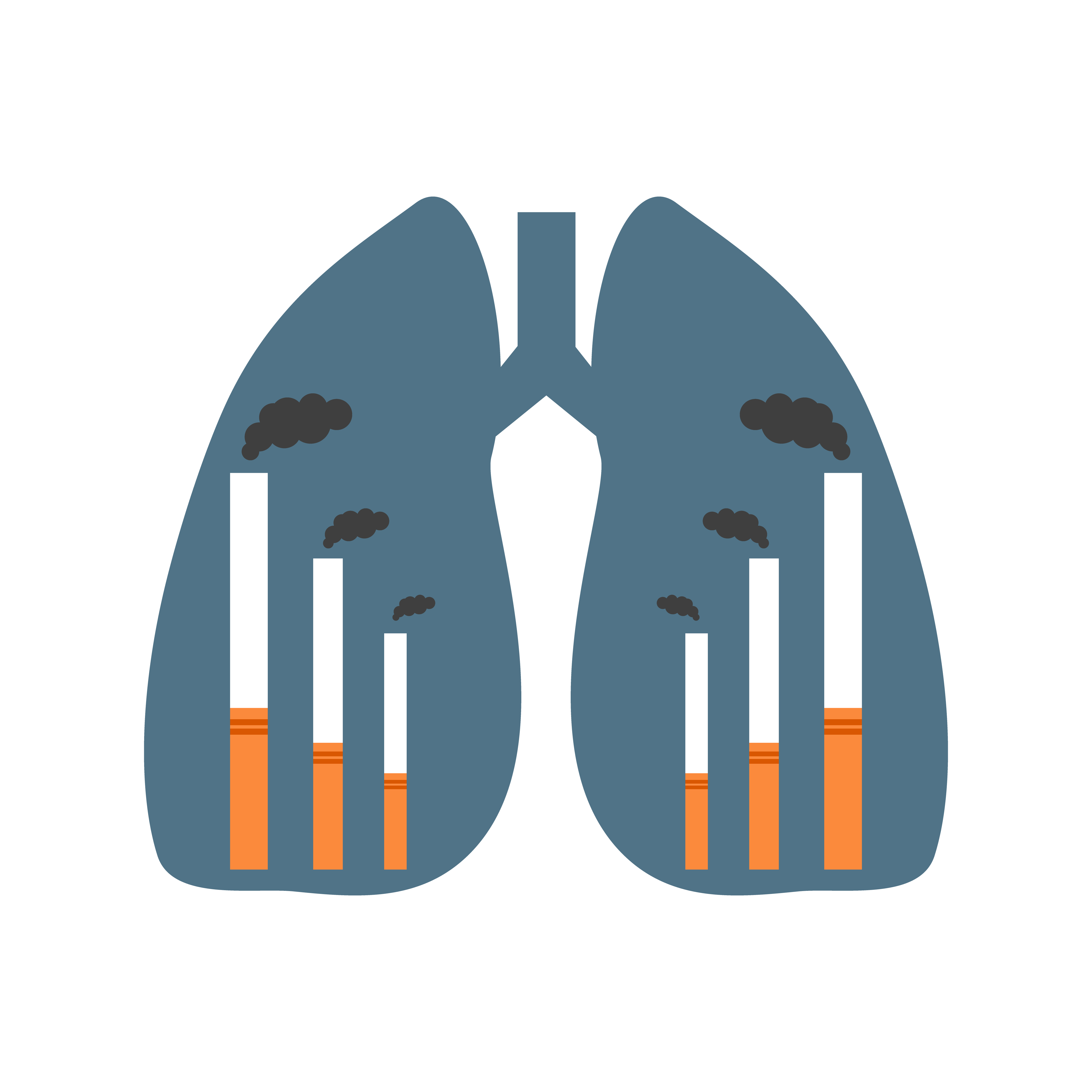In a recent study entitled “Decreased expression of the NF-κB family member RelB in lung fibroblasts from Smokers with and without COPD potentiates cigarette smoke-induced COX-2 expression” researchers show that cigarette smoke induces low levels of RelB expression in the lungs, a phenotype that may increase the risk for certain individuals to develop Chronic Obstructive Pulmonary Disease. The study was published in the journal Respiratory Research, and builds on an increasing knowledge base regarding the damaging mechanisms of cigarette smoke and the lungs.
Chronic obstructive pulmonary disease (COPD) is an lung disease characterized by inflammation of the lungs and chronically poor airflow escalating over time. Its symptoms include shortness of breath, cough and mucus production and are caused by environmental factors, including exposure to noxious particles. Cigarette smoke is the major cause for COPD, accounting for 80-90% of COPD cases, by triggering lung inflammation via induction of inflammatory mediators, including cyclooxygenase-2 (COX- 2).
A member of the NF-κB family, RelB, was previously linked to dampening of cigarette smoke-induced pulmonary inflammation, which was accompanied by decreased expression of COX-2. However, cigarette smoke was also shown to promote RelB protein degradation. As a result, in this study the authors asked whether the increase in COX-2 expression in COPD due to cigarette smoke was associated with lower or even the absence of RelB expression.
To this end, the team analyzed lung fibroblasts and blood samples derived from non-smokers (Normal) and smokers (At Risk) with and without COPD for expression of RelB and Cox-2, either at the mRNA level and protein level. They found a significant decrease in RelB mRNA and protein levels in lung fibroblasts from both smokers with and without COPD. Notably, those without COPD expressed higher levels of COX-2 expression, mRNA and protein, when exposed to cigarette smoke extract (CSE). The team performed functional assays, and upon RelB knock-down (via siRNAs) in normal cells followed by CSE exposure led to an increase in Cox-2 levels.
[adrotate group=”3″]
The teams’ findings show that lung fibroblasts from smokers (at risk) and COPD patients exhibit significantly less RelB mRNA and protein expression when compared to non-smokers (Normal) fibroblasts. This suggests an effect of cigarette smoke inducing a reduction of RelB expression. Additionally, their results indicate RelB downregulates COX-2 expression in lung cells, suggesting that pulmonary loss of RelB may trigger lung inflammation associated with COPD pathogenesis. However, further research of the molecular mechanisms on how low RelB levels may predispose the development of COPD is necessary, since it may lead to the development of targeted therapies for lung disorders associated with cigarette smoking.

